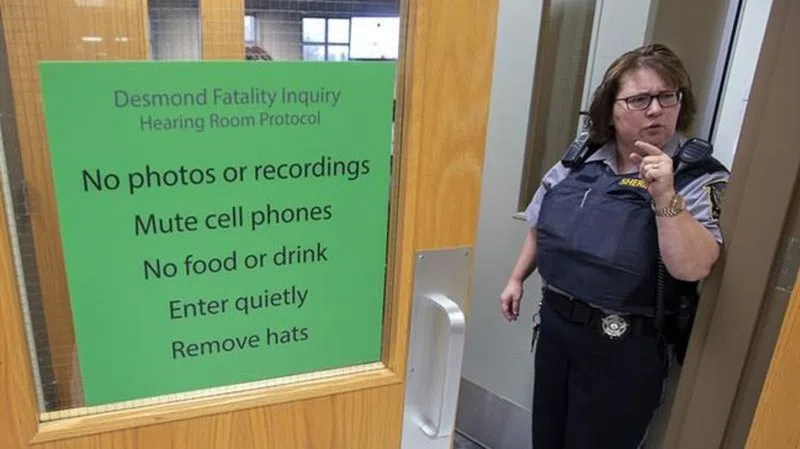
Official says she would have denied Desmond a gun licence had she known more
GUYSBOROUGH, N.S. — An inquiry investigating why a former Canadian soldier fatally shot three family members and himself heard Thursday from a firearms official who said she would have rejected Lionel Desmond’s firearms licence had she known more about his severe mental illness.
Lysa Rossignol, operations manager for the Provincial Firearms Office in New Brunswick, told the inquiry she knew nothing about a December 2015 letter recommending Desmond for admission to a residential treatment program for people suffering from post-traumatic stress disorder.
The letter, from an operational stress injury clinic in Fredericton, said Desmond was struggling with PTSD and major depression, which is why he required intervention to stabilize his mental health.
The provincial court judge overseeing the inquiry, Warren Zimmer, read portions of the letter into the record, including the following: “Client continues to struggle with disabling symptoms of PTSD that directly affect his social and occupational functioning.”
